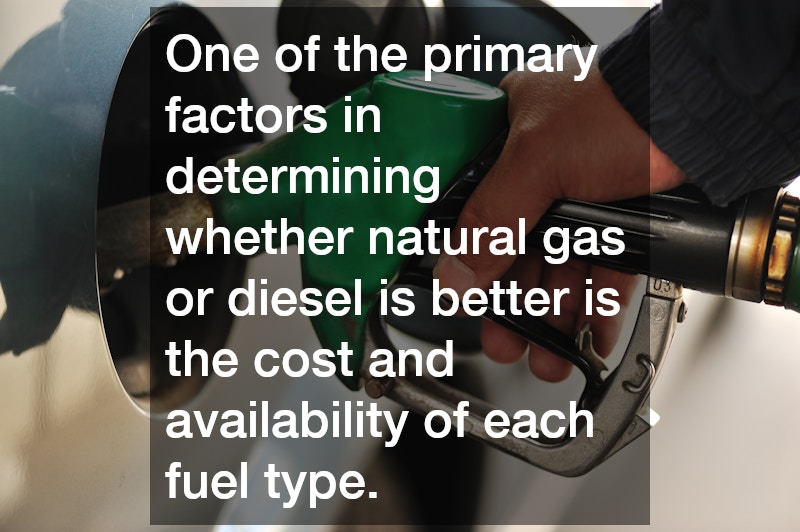When it comes to choosing a fuel source for generators, vehicles, or industrial equipment, the debate often comes down to natural gas vs. diesel. Both fuel types have their pros and cons, and the decision depends largely on your specific needs and circumstances. So, is natural gas or diesel better? Let’s explore the differences between the two to help you make an informed decision.
Cost and Availability
One of the primary factors in determining whether natural gas or diesel is better is the cost and availability of each fuel type. Diesel has traditionally been a more expensive fuel compared to natural gas.
However, diesel is widely available and can be easily transported and stored. On the other hand, natural gas is generally cheaper and more stable in price, making it an attractive option for those looking to save on fuel costs over time. The caveat, however, is that natural gas requires access to a pipeline, which may not be available in all areas. If you live in a region where natural gas is readily available, it might be a more cost-effective option.
Environmental Impact
In recent years, the environmental impact of fuel choices has become a significant consideration for many people and businesses. In the question of “is natural gas or diesel better?” from an environmental perspective, natural gas tends to have the upper hand. Natural gas burns cleaner than diesel, producing fewer harmful emissions such as carbon dioxide, nitrogen oxides, and particulate matter. This makes natural gas a better option for those who are concerned about reducing their carbon footprint and adhering to stricter environmental regulations. Diesel, while more efficient in energy output, tends to produce more emissions, which can contribute to air pollution and global warming.
Efficiency and Performance
Diesel is known for its high energy density, which means it can generate more power per unit of fuel compared to natural gas. This makes diesel engines particularly efficient for heavy-duty applications, such as in trucks, industrial machinery, and backup generators. Diesel engines also tend to have better torque, making them ideal for tasks that require significant power. However, natural gas engines have made strides in efficiency and are increasingly being used in various applications, particularly where environmental concerns are a priority. For day-to-day use, if you’re looking for raw power and durability, diesel might be the better option.
Maintenance and Longevity
When considering maintenance and longevity, diesel engines have a reputation for durability and long service life. Diesel engines are designed to withstand heavy use and often require less frequent maintenance compared to natural gas engines. However, when maintenance is required, diesel engines can be more complex and expensive to repair. Natural gas engines, on the other hand, tend to run cleaner, which can lead to fewer deposits and less wear on the engine. This can reduce maintenance needs, but the trade-off is that natural gas engines may not be as robust as diesel engines in heavy-duty applications.
.
